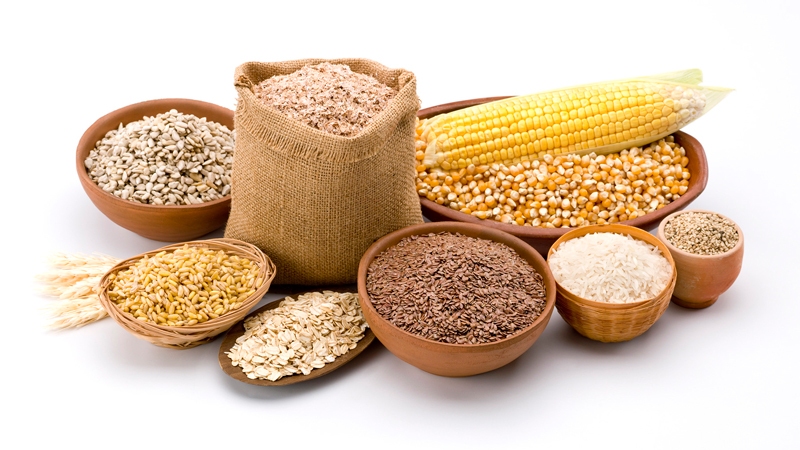Whole Grain Benefits: Study finds new beneficial compounds.
Source: University of Eastern Finland Nov 03, 2018 6 years, 5 months, 1 week, 6 days, 6 hours, 25 minutes ago
Scientists have discovered new compounds that may explain whole grain health benefits, reports a new study led by the University of Eastern Finland. A high intake of whole grains increased the levels of betaine compounds in the body which, in turn, was associated with improved glucose metabolism, among other things. The findings shed new light on the cell level effects of a whole grain-rich diet, and can help in the development of increasingly healthy food products.
"Whole grains are one of the healthiest foods there is. For instance, we know that a high intake of whole grains protects against
type 2 diabetes and cardiovascular diseases. Up until now, however, we haven't understood the cellular mechanisms through which a whole grain-rich diet impacts our body," says Dr Kati Hanhineva, Principal Investigator of the study at the University of Eastern Finland.
Using metabolomics analysis, Dr Hanhineva's research group investigated the effects of a whole grain-rich diet on the body's metabolites. The effects were studied in mice fed with bran-rich fodder, and in humans following a diet rich in whole grain products over the course of 12 weeks. A whole grain-rich diet increased the levels of betaine compounds in both mice and humans.
"This is the first time many of these betaine compounds were observed in the human body in the first place," Dr Hanhineva says.
At the end of the 12-week follow-up, the researchers also observed a correlation between improved glucose metabolism and increased presence of betaine compounds in the body.
"Pipecolic acid betaine, for example, is particularly interesting. Increased levels of pipecolic acid betaine after the consumption of whole grains was, among other things, associated with lower post-meal glucose levels."
New compound worked similarly to a heart drug in cell level experiments
One of the betaine compounds discovered by the researchers is 5-aminovaleric acid betaine, 5-AVAB, which seems to cumulate in metabolically active tissues, such as the heart. With this observation in mind, the researchers set out to further test its effects in a cell model.
"We observed that 5-AVAB reduces cardiomyocytes' use of fatty acids as a source of energy by inhibiting the function of a certain cell membrane protein," Researcher Olli Kärkkäinen from the University of Eastern Finland says.
"This cell level effect is similar to that of certain drugs used for cardiovascular diseases. However, it is important to keep in mind that we haven't proceeded beyond cell level experiments yet. We need further research in animals and humans to verify that 5-AVAB really can impact the function of our body."
However, the discovery of the new compounds associated with whole grains significantly enhances our understanding of why whole grain
products are good for our health.
"In the future, we seek to analyse in greater detail the multitude of effects these new compounds can have on the human body, and we will also look into how intestinal microbes possibly contribute to the formation of these compounds," Dr Hanhineva continues.
le="font-size:11px">Reference: Olli Kärkkäinen, Maria A Lankinen, Marilena Vitale, Jenna Jokkala, Jukka Leppänen, Ville Koistinen, Marko Lehtonen, Rosalba Giacco, Natalia Rosa-Sibakov, Valérie Micard, Angela A A Rivellese, Ursula Schwab, Hannu Mykkänen, Matti Uusitupa, Marjukka Kolehmainen, Gabriele Riccardi, Kaisa Poutanen, Seppo Auriola, Kati Hanhineva. Diets rich in whole grains increase betainized compounds associated with glucose metabolism. The American Journal of Clinical Nutrition, 2018; DOI: 10.1093/ajcn/nqy169
